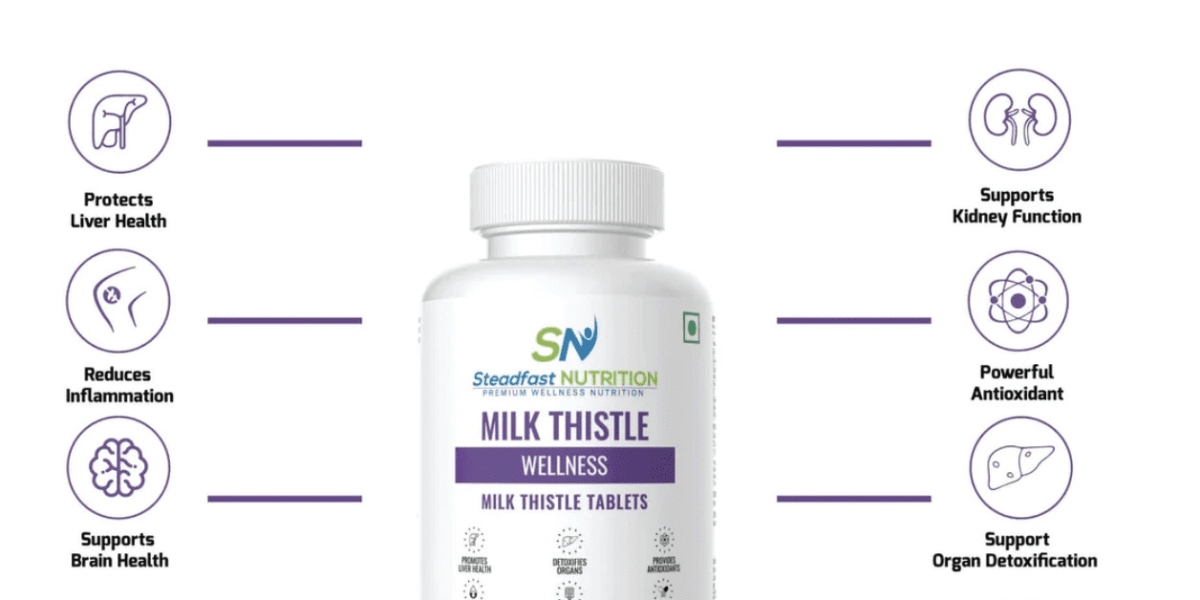Milk thistle, an herb hailing from the same floral family as the daisy, has garnered significant attention for its potential health benefits. However, it's essential to clarify that milk thistle is not a cancer treatment. In this article, we delve into the world of milk thistle, exploring its properties and its potential role in liver health and cancer prevention.
What is Milk Thistle?
For centuries, people have turned to the fruit and seeds of the milk thistle plant as a herbal remedy, primarily for liver-related issues. Scientifically known as Silybum marianum, milk thistle goes by several aliases, including lady’s thistle, St. Mary’s thistle, holy thistle, and variegated artichoke.
At the heart of its medicinal allure lies silymarin, an extract derived from milk thistle seeds. Silymarin, renowned for its antioxidant properties, acts as a guardian against cellular damage. It comprises four major compounds, with silybin being the most active, followed by isosilybin, silychristin, and silydianin. Most research has centered around silymarin and silybin.
Forms of Consumption
Milk thistle supplements are available in various forms, including capsules, tablets, powders, and liquid extracts. The powdered variant can also be transformed into a soothing herbal tea.
Safety Considerations
While milk thistle is generally considered safe, it's advisable to consult your physician before incorporating it into your health regimen. Pregnant or nursing women should abstain from its use, and individuals with diabetes should seek medical guidance. Rarely, milk thistle tablets can lead to adverse effects such as diarrhea, nausea, and heartburn.
If you have pre-existing liver conditions, it's crucial to consult your doctor, as high doses of milk thistle may elevate bilirubin and liver enzyme levels. As with any supplement, caution should be exercised.
The Enigma of Milk Thistle and Cancer
The question that looms large is whether milk thistle can play a role in cancer prevention or treatment. At present, conclusive evidence remains elusive, necessitating further research.
Research in the Laboratory
Laboratory studies have hinted at milk thistle's potential in treating liver diseases like hepatitis and cirrhosis. These findings have sparked interest in its broader applications.
Clinical Trials
A handful of trials have examined the use of milk thistle in cancer patients. Specific areas of interest include:
Milk Thistle (Silymarin) and Chemotherapy
Can milk thistle complement chemotherapy treatments? This remains an area of exploration.
Milk Thistle and Breast Cancer
Some sources claim that milk thistle could slow the progression of breast cancer. But concrete evidence is still lacking.
Milk Thistle and Leukemia (ALL)
The potential role of milk thistle in leukemia treatment is another avenue under investigation.
Internet Claims
Numerous online sources assert that milk thistle aids in liver detoxification and shields other organs like the gallbladder and spleen. Some even suggest that it could impede the growth of certain cancers, such as breast and prostate cancer.
The Need for More Research
While intriguing, these claims are not yet substantiated by robust scientific evidence. To ascertain milk thistle's true potential in preventing or treating cancer and enhancing overall health, we require comprehensive clinical trials involving larger participant groups.
A Word of Caution
Before introducing milk thistle into your health regimen, it's imperative to consult with your oncologist or healthcare specialist. They possess valuable insights into your unique medical situation and can provide personalized advice.
In conclusion, milk thistle shows promise as a herbal remedy, particularly for liver-related ailments. However, its role in cancer prevention and treatment remains an exciting but uncharted territory that necessitates further scientific exploration. Always prioritize professional guidance and evidence-based practices when considering the incorporation of milk thistle or any supplement into your health routine.








